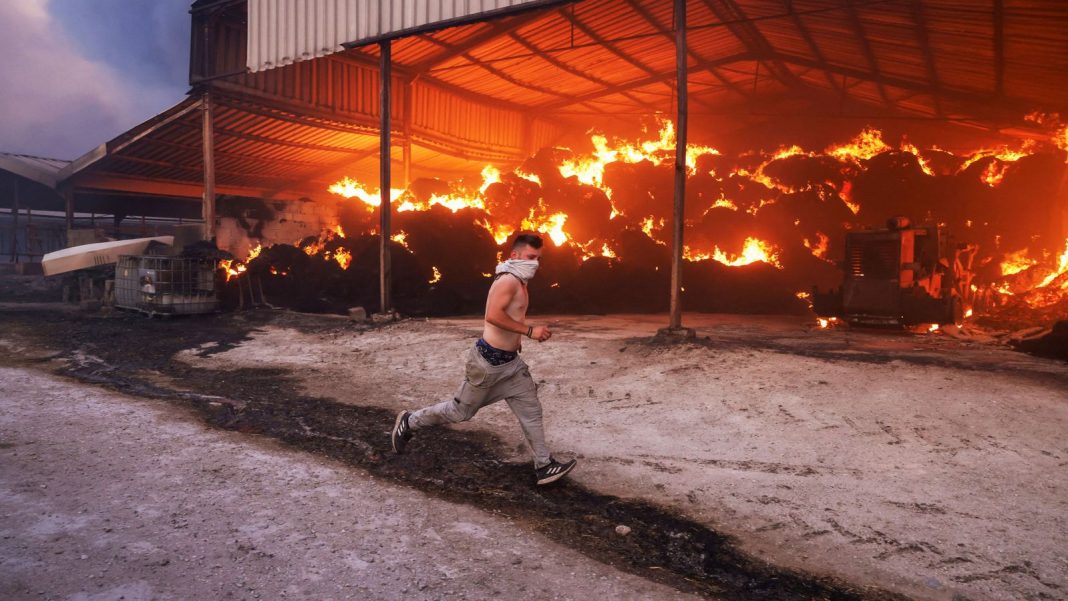Scientists are virtually certain that July will be the hottest month ever recorded, even with four days still to go.
Hot off the heels of the warmest ever June globally, this month is set to be both the warmest ever July and warmest month of any kind.
“Scientists have been warning us about this for a very long time,” Chris Hewitt, director of Climate Services at the UN’s World Meteorological Organization (WMO) told Sky News. And now “we are seeing this trend”, he said.
The WMO said the amped up global average was closely linked with the fierce heatwaves that baked swathes of North America, China and Europe, which inflicted “major” impacts on people’s health.
The heatwaves in Europe and the US would have been “virtually impossible” without human-induced climate change, according to scientific data released on Tuesday.
The world’s previous hottest ever month was July 2019 or July 2022, which were both about 16.6C on average, give or take small margins of uncertainty because no organisation has thermometers in every location in world.
July 2023 is likely to be 16.9C or more, based on provisional figures from the EU’s Copernicus service.
Mr Hewitt said: “A few tenths of a degree is quite a lot in a global average surface temperature.”
It is the “quite big difference” between this month and previous records that makes the scientists so confident we are on course for a new hottest month ever.
Even if temperatures plummeted, which they aren’t forecast to, the average will still likely remain above 16.6C.
July has already seen the hottest three-week period ever recorded; the three hottest days on record; and the highest-ever ocean temperatures for this time of year.
Global average is a useful measure because it smooths out local fluctuations in the weather to give an over-arching view of how the climate has warmed since humans began burning fossil fuels at scale.
Mr Hewitt added: “The weather will continue to vary between hot and cold, wet and dry, windy and not windy. But as the climate warms, you’ll be shifting towards more likelihood for the hot days and warmer conditions.”
This year could bring further individual monthly heat records, he said.
“Over the next few months and throughout this year, we don’t see any respite in this warming at the moment.”
“It looks like the warming for the whole planet will continue this year.”
Meanwhile, in the UK recent weather has been cooler than average.
But this morning the Met Office warned the staggering heat of last year, at the time considered extraordinary, will become normal by 2060.
Watch The Climate Show with Tom Heap on Saturday and Sunday at 3pm and 7.30pm on Sky News, on the Sky News website and app, and on YouTube and Twitter.
The show investigates how global warming is changing our landscape and highlights solutions to the crisis.







